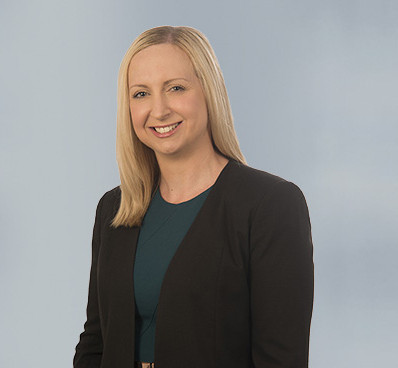Wills and Estates Lawyers Brisbane
How can our Brisbane Wills and Estate lawyers help?
Having the right legal services and support is important to make sure you receive the best outcome possible. Our dedicated team of estate lawyers in Brisbane can assist you in all of the following areas:
- Making a will
- Estate planning
- Powers of attorney
- Advance health directives
- Estate administration
- Estate litigation and will disputes
- Superannuation claims
- Family provision claims
Wills & Estates law affects every person throughout their lives when they lose a loved one. Turner Freeman Lawyers understand the stressors of dealing with such personal and emotional matters which come at often a difficult time. We offer a comprehensive, cost-effective and sensitive approach to Estate Planning, Estate Administration and Estate Litigation.
Meet our Will lawyers in Brisbane
Why should I choose Turner Freeman?
At Turner Freeman, a specialist Wills & Estate solicitor will provide advice around every legal issue that may affect your estate.
A Will prepared by the Turner Freeman estate lawyers will provide you and your family with professional and genuine security. We can help you with effective estate planning to ensure your assets are protected and distributed to the right people according to your exact wishes.
All our wills and estates lawyers in Brisbane have extensive experience with all aspects of estate law and have represented clients across a broad range of wills and estate matters.
Making a Will
Our wills and estates law firm in Brisbane can help with everything from simple wills to complex estate planning. Having an estate planning lawyer prepare your will ensures your loved ones and beneficiaries are provided for as you wish. Every person should have an up-to-date and valid Will. Making your Will with us is quicker and easier than you might think. We have a specialist team for drafting wills.
Why do I need a Will?
A properly drafted, up-to-date will is the only way you can be sure your assets will be dealt with and your loved ones cared for in the way you choose. By having a legally prepared Will, it could also reduce the likelihood of any estate disputes or a person challenging your Will. It can save a lot of anxiety and conflict within your family.
What happens if I pass away without a valid Will?
If you pass away and do not leave a valid Will, you are deemed to have died ‘intestate.’ Your estate is then distributed in accordance with the laws of intestacy in force at the date of your death. These strict rules dictated by legislation operate without any regard to what your personal preference may have been. In addition, if you don’t leave a valid Will, the cost, uncertainty and worry for your loved ones in finalising your affairs, will increase.
Estate Planning
Estate planning involves more than just a Will. Generally, a complete estate plan involves:
- looking at your assets, investments and estate holistically
- nominating decision makers to act on your behalf (Powers of Attorney)
- ensuring that the ownership of your assets is passed on to the correct beneficiaries
- ensuring that you have asset protection in place in case a beneficiary has any legal problems or special needs
- creating a Will (legally binding) and a Statement of Wishes (morally binding).
Powers of Attorney
A power of attorney can be just as important as having a will. It means that someone is legally appointed to act on your behalf regarding your financial and legal affairs.
If you lose capacity and cannot handle your own affairs, it is important they’re managed by a trusted loved one rather than a government department. Powers of Attorney are formal legal documents that give someone else the power to make decisions for you on your behalf.
Advance Health Directive
An Advance Health Directive (AHD) allows you to give directions as to your future health care that will take effect after you lose capacity to make the decision yourself.
The purpose of an AHD is to give you the confidence that your health care wishes will be carried out if you cannot speak for yourself. An AHD is particularly important for people who are concerned that they have no close family members or friends who are aware of their health care wishes.
You can direct the type of medical treatment or palliative care you wish to receive if you are diagnosed with a terminal, incurable or irreversible condition, are permanently unconscious or in a persistent vegetative state.
For AHD to be valid, it will be forwarded you to take to your doctor for advice on various medical procedures. You must then sign the AHD in the presence of your doctor who will certify that you understand the decisions you have made in your AHD.
An AHD cannot be used to permit voluntary euthanasia, or to accelerate the death of a person.
Estate Administration
The administration of deceased estates can be an overwhelming and time-consuming process for many clients, which can come at a very difficult time for the Executor, who is often a grieving family member or friend.
The Estate Administration process may also require a Grant of Probate or a Grant of Letters of Administration to verify the authority of the person entitled to administer the Estate (the executor).
Our Brisbane probate lawyers can offer expert advice on all aspects of your rights and duties as an executor or administrator of a deceased person’s estate.
Roles and duties of an executor
As an Executor of a Will or Administrator of the Estate you have a number of duties and responsibilities you must carry out upon the deceased’s passing. These may include organising the deceased’s funeral, paying outstanding bills, debts and taxes.
These must be carried out diligently and as per the deceased’s wishes stated in their last Will.
What is Probate?
When a person dies leaving a Will, certain legal requirements and procedures have to be followed before the estate can be distributed to beneficiaries.
The Will should have appointed an executor who is responsible for completing these procedures.
If you are appointed as an Executor by a person who has died leaving a Will, you may need to obtain a Grant of Probate in order to administer the Estate.
A Grant of Probate is an order granted by the Supreme Court of Queensland and verifies the authority of the Executor to deal with the Estate. It essentially acts as an indemnity and offers protection to banking institutions and other companies who hold money on behalf of the deceased person as it states that the Will is the last valid Will of the deceased and therefore the company is releasing the deceased person’s funds to the right person, the Executor of the last valid Will.
This can be a very complicated process so having probate and estate lawyers manage the process for you can be a relief in what is often a very sad time.
What is Letters of Administration?
Where a person dies without a Will, or with a Will that does not have a valid Executor appointed, the person entitled to deal with the Estate of the deceased may be required to obtain a Grant of Letters of Administration from the Supreme Court of Queensland. A person who obtains a Grant of Letters of Administration is referred to as an “Administrator,” and they have the same role as an Executor.
How do I apply for a Probate or Letters of Administration?
You can apply for a Grant of Probate or Letters of Administration through an estate lawyer, a trustee company, the Public Trustee of Queensland or online services.
We strongly advise getting the assistance of an estate lawyer as estate law is a complex entity. At Turner Freeman a lawyer will advise you on all the relevant legal issues surrounding probate and assist you to deal with any difficulties.
Estate Litigation and Will Disputes
If you have been unfairly left out of a Will or left with an unfair share, our Brisbane estate lawyers can help you disputing a Will, contesting Wills or challenging a Will to ensure you receive all that you deserve. Our expert estate lawyers can manage all aspects of estate litigation matters.
Superannuation Claims
If you are contesting a Will, part of that process might also include challenging a pay out from superannuation funds if they are part of an insurance policy held by the deceased person.
Talk to our team
Once you complete the form, here’s what happens next:
Schedule an initial chat
We’ll arrange a time that suits you to speak with one of our lawyers. We can even come to your home or hospital.
Have a conversation about what you need help with
During this no-obligation consultation we’ll listen to your situation and provide initial advice.
Receive our offer
After the consultation, we’ll send you our offer. This will clearly outline your options and let you decide if you’d like to move forward.
"*" indicates required fields
How to contact us
Our team is ready to help


